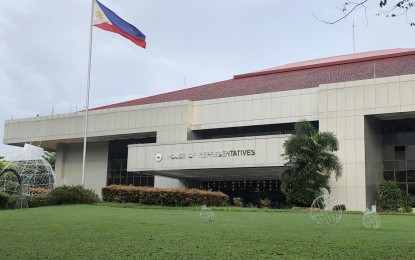
MANILA – A proposal ensuring gender-responsive and inclusive protocols and programming to address the gender-differentiated needs of women during pandemic, emergencies and disasters hurdled committee level at the House of Representatives.
In a virtual meeting on Wednesday, the House Committee on Women and Gender Equality approved in principle House Bills 9059 and HB 9465, both of which aim to address the gender-differentiated needs of women, especially from the marginalized sectors.
Committee chair Ma. Lourdes Acosta-Alba, who also authored HB 9059, said the impacts of pandemics and other disasters are not gender-neutral, noting that the country's response to Covid-19 has demonstrated that women and girls are more "disproportionately affected".
“As policymakers, we have to ensure that gender-responsive approaches, as strongly recommended by both bills, are necessary to accomplish our commitment to leave no one behind, to build back better towards a better normal and heal as one," Alba said in her sponsorship speech.
Acosta-Alba further noted that existing gender roles put an additional burden on women during pandemics or in any other disaster setting.
She said gender response and protocols can reduce long-term social consequences, as the bill aims to institutionalize "intersectional gender analysis on the way we respond and develop programs" during pandemics.
She highlighted that women are agents of change for pandemic response and in strengthening resilience and recovery measures.
Tingog Party-list Rep. Yedda Romualdez, a co-author of HB 9059, said the proposal is one important piece of legislation as it aims towards the advancement and inclusion of Filipino women, as well as the protection of their rights during public health emergencies.
“The pandemic and other public health concerns and disasters in the future should not hinder gender equality and participation of women in leadership decision making and policymaking," Romualdez said.
The bill adopts a zero-tolerance policy towards gender-based violence, abuse, and exploitation, which is rooted in gender inequality and discrimination.
The implementation of approaches and strategies relevant to disaster risk reduction, emergency, and pandemic management must integrate human rights and gender lenses.
The bill requires every department or agency to come up with a gender-responsive pandemic preparedness plan, manual, or protocol for women in pandemics. (PNA)
